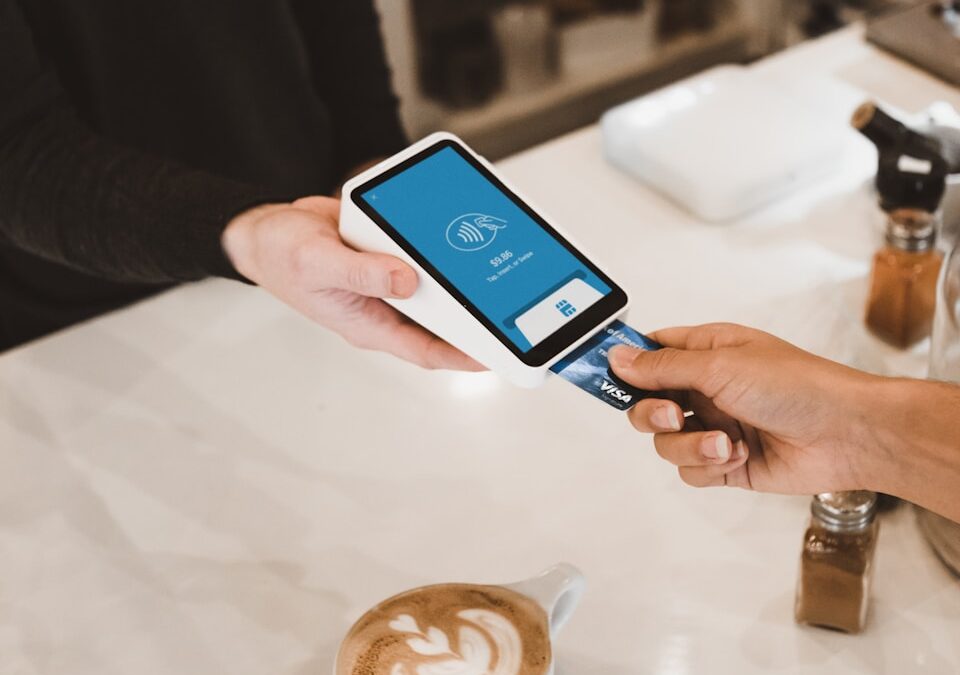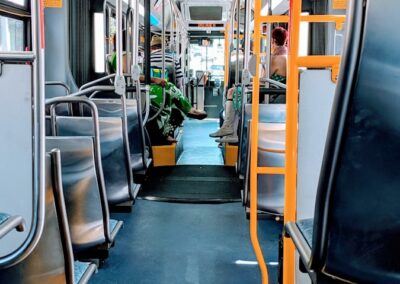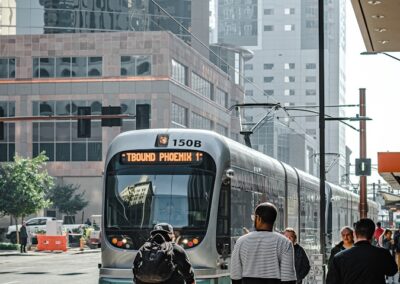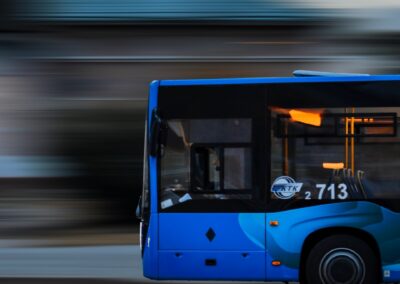Revolutionizing Public Transit with Modern Technology
The use of contactless payment systems in public transportation has revolutionized the way people commute, offering unprecedented convenience and accessibility. In bustling cities like Riyadh and Dubai, integrating such advanced technologies is pivotal for streamlining transit operations and enhancing the overall commuter experience. Contactless payment systems and mobile apps facilitate quick and seamless transactions, reducing wait times and improving efficiency in public transportation networks.
In Saudi Arabia, the adoption of contactless payment technologies aligns with the nation’s vision to modernize its infrastructure and improve urban mobility. By implementing these systems, commuters can enjoy hassle-free travel, eliminating the need for physical tickets and cash transactions. Mobile apps complement these payment systems by providing real-time information on bus schedules, routes, and availability, ensuring that passengers can plan their journeys more effectively.
Similarly, the UAE, particularly Dubai, has been at the forefront of leveraging technology to enhance public transportation. The city’s Roads and Transport Authority (RTA) has introduced a range of contactless payment options and mobile applications that allow users to top up their travel cards, purchase tickets, and access transit information with ease. This seamless integration of technology not only boosts convenience but also encourages more people to use public transportation, thereby reducing traffic congestion and environmental impact.
Driving Business Success through Technology Integration
The integration of contactless payment systems and mobile apps in public transportation is not just about improving commuter experience; it also represents a significant business opportunity. For business executives and entrepreneurs, investing in such technologies can lead to substantial returns by tapping into the growing demand for smart transit solutions. As cities like Riyadh and Dubai continue to expand, the need for efficient and user-friendly transportation systems will only increase, creating a fertile ground for innovation and business growth.
Management consulting firms play a crucial role in facilitating this transition. By offering strategic guidance and technical expertise, consultants help transit authorities and private operators navigate the complexities of technology implementation. From system integration to user adoption strategies, effective management consulting ensures that the transition to contactless payments and mobile apps is smooth and successful.
Furthermore, executive coaching services are essential for leaders overseeing these projects. Coaching helps executives develop the skills needed to lead technological change, manage stakeholder expectations, and drive project success. By fostering strong leadership and effective communication, coaching services contribute to the successful adoption of contactless payment systems and mobile apps in public transportation.
Leveraging AI and Blockchain for Enhanced Security and Efficiency
Artificial Intelligence (AI) and Blockchain technologies offer additional layers of security and efficiency to contactless payment systems in public transportation. AI algorithms can analyze travel patterns and optimize routes, ensuring that buses and trains run on time and resources are used efficiently. This data-driven approach enhances the reliability of public transportation, making it a more attractive option for commuters.
Blockchain technology, on the other hand, ensures the security and transparency of transactions. By using Blockchain to manage payments, transit authorities can prevent fraud, reduce errors, and maintain accurate records of all transactions. This level of security is crucial for building trust among users and encouraging wider adoption of contactless payment systems.
In Riyadh and Dubai, leveraging AI and Blockchain can transform public transportation into a more efficient and secure system. By integrating these technologies, cities can ensure that their transportation networks are resilient, reliable, and capable of meeting the needs of a growing population. This technological advancement not only improves the commuter experience but also supports broader urban development goals.
Adapting to Change with Effective Leadership
Successful integration of contactless payment systems and mobile apps requires effective change management and leadership. Business leaders must be adept at navigating the complexities of technology adoption, from addressing technical challenges to managing organizational change. Executive coaching services can equip leaders with the skills and insights needed to drive successful technology integration and foster a culture of innovation.
In Dubai, for instance, the RTA’s leadership has been instrumental in driving the adoption of contactless payment systems and mobile apps. By fostering a forward-thinking mindset and embracing change, the RTA has transformed Dubai’s public transportation system into a model of efficiency and convenience. Similarly, Riyadh’s transit authorities are making significant strides in modernizing their transportation network, guided by visionary leadership and strategic planning.
Effective communication is also critical for successful change management. Leaders must engage with stakeholders, including employees, passengers, and technology providers, to build consensus and drive collective action. By fostering open dialogue and collaboration, leaders can ensure that the transition to contactless payment systems and mobile apps is smooth and widely accepted.
#ContactlessPaymentSystems #MobileApps #PublicTransportation #Convenience #Accessibility #AI #Blockchain #SaudiArabia #UAE #Riyadh #Dubai #ChangeManagement #ExecutiveCoaching #BusinessSuccess #ManagementConsulting























